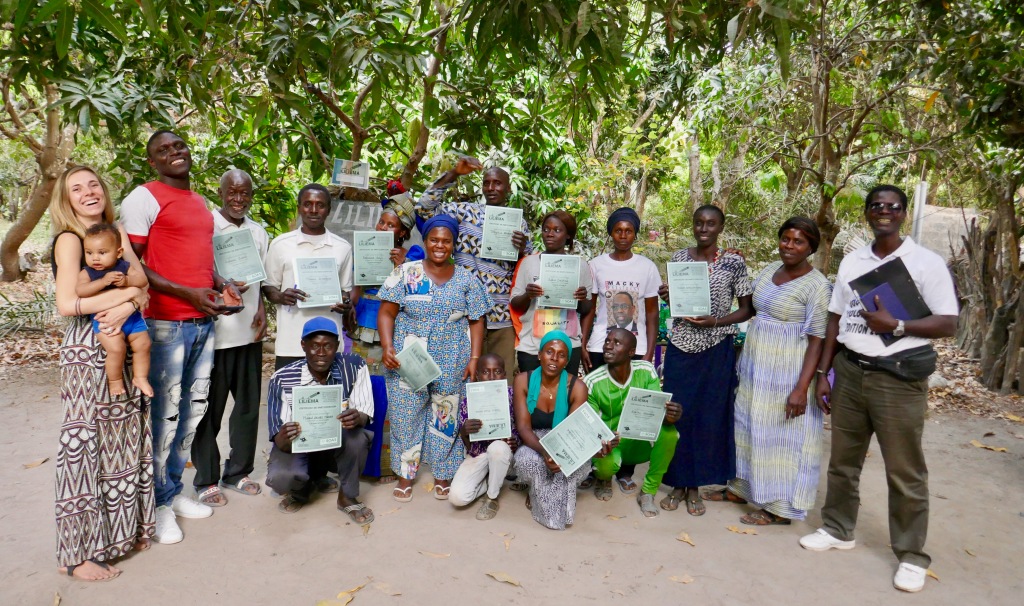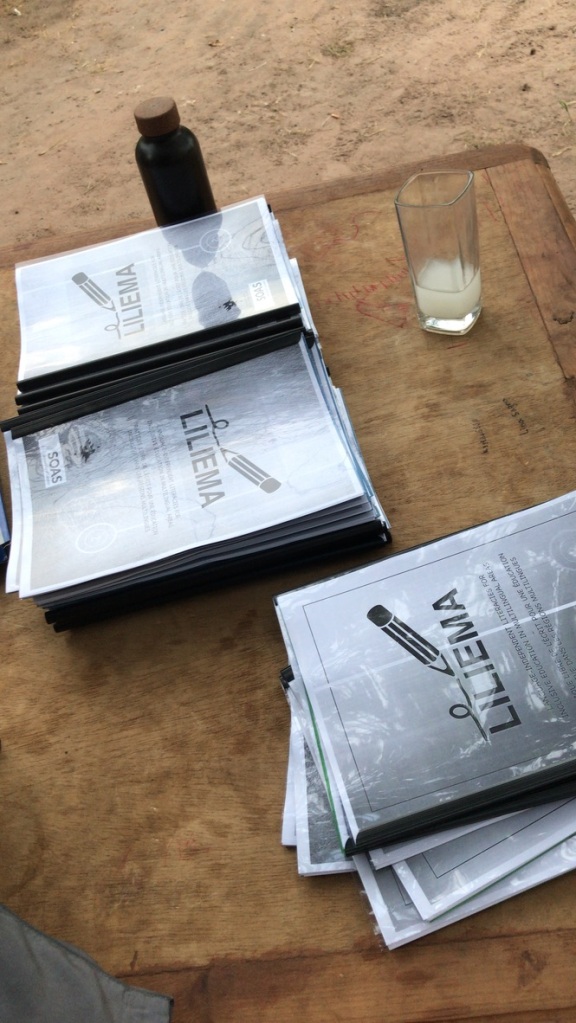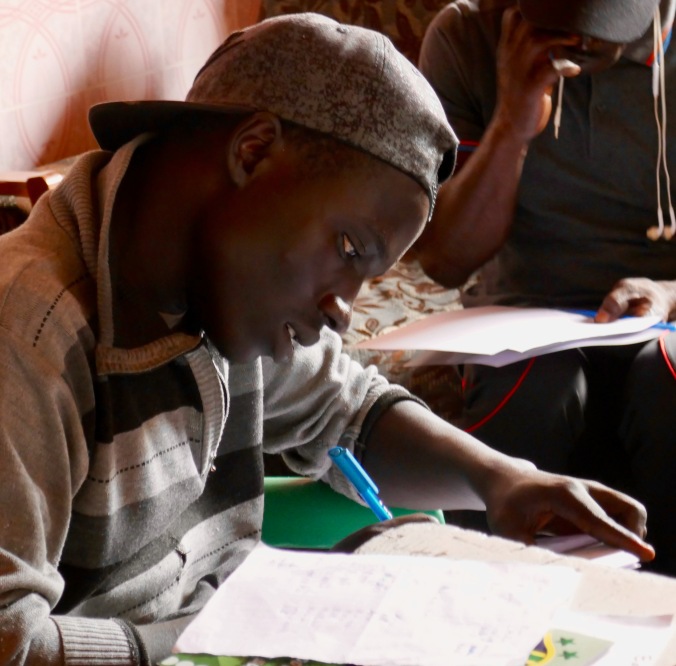
LILIEMA: supporting language-independent literacies for inclusive education in multilingual areas
Welcome to our website! In order to reach a broad audience, this site is published in English. You can obtain a translation into French and other languages here.
Bienvenue sur notre site! Afin d’atteindre un large public, ce site est publié en anglais. Vous pouvez obtenir une traduction en français et dans d’autres langues ici.
We are LILIEMA, a Senegalese association promoting language-independent literacy for multilingual areas. Our approach is grounded in multilingual oral and written practices documented by our team of local and international transcribers and researchers in the Crossroads project. Based on the joint experiences of transcribing and analysing multilingual data, and on our understanding of everyday multilingual language use in in the Lower Casamance region of Senegal, we developed a new approach to literacy.
In the LILIEMA programme, we create resources that allow repertoire-based literacies – rather than learning to read and write one single language, our learners read and write all languages in their repertoire, using the same characters and spelling conventions. We use the official alphabet for Senegalese languages, developed by the Senegalese linguist Arame Fall.
Our repertoire-based approach is inspired by the principles of longstanding West African multilingual writing practices such as Ajami writing, and by contemporary grassroots writing practices. In these traditions, the writing and spelling systems of a language taught in schools (Arabic, French, English, etc.) is used to write other languages as well.
These practices emerged as tailored solutions for reading and writing in deeply multilingual societies, where languages are often seamlessly intertwined in speech and writing, but can also kept apart. Language-independent strategies constitute an efficient way to read and write several languages without having to learn several different orthographic conventions. At LILIEMA, we are committed to nurturing local expertise through valorising local practices. We have therefore chosen to adopt this West African solution, which caters best for fluid and versatile multilingual situations, for an innovative educational programme grounded in local knowledges.
OUR METHOD AND VISION

Writers have complex multilingual writing needs. With LILIEMA, they do not need to choose one language. They can write as mono- or multilingually as required by the context and their networks.
Literacy campaigns selecting one language per location exclude a large number of inhabitants: women who have married into these places, often from neighbouring Guinea Bissau and the Gambia, fostered children, etc. LILIEMA does not exclude any learner or language.
Literacy programmes are often conceived as “alphabétisation” – targeted mainly at adult illiterate learners and disproportionally attended by women who have not acquired official language literacy at school. This practice creates a hierarchy between people with prestigious formal literacy in French and national language literacy, seen as less valuable. LILIEMA includes all learners, supports their full range of literacy skills and valorises local knowledges through its course content and additional “writing culture” days.
Many literacy programmes focus on languages of wider communication, such as Wolof or Mandinka. By doing so, they offer literacy skills of great practical use in the entire country. But at the same time, these classes weaken the status of locally confined languages and exacerbate linguistic inequality. Literacy campaigns in small languages strengthen these languages, but are of very limited reach. By not requiring selecting a language, LILIEMA caters for all languages without creating hierarchies between them.
Often, learners’ literacy skills are lost when they move into a different area where a different national language is taught in literacy classes. Since LILIEMA teaches sound-letter associations independently of language, learners can transfer their skills to any national language of Senegal written in the official alphabet. Our president Alpha Mané captured this flexibility by calling LILIEMA “l’alphabet sans frontières – the alphabet without borders”. Our vision is to extend LILIEMA to become a method that can be adapted to any multilingual context to create sustainable literacy steeped in local culture, taught and developed by local experts, and committed to social justice and inclusion in education.
OUR WORK
The LILIEMA programme has two pillars: workshops and courses. In our workshops, we develop teaching materials and teaching methods in teams composed of LILIEMA members and teachers and learners. You can learn more about our workshops here.
Following the method developed in the workshops, we have designed a course programme and created course materials for the different local settings in which we are currently teaching.
Together, we created a Covid-19 campaign in which we are providing public health information on the prevention of this disease in languages and formats adapted to the different multilingual settings of Casamance. Because we have held LILIEMA courses in the area where this information is shared, our written multilingual information on Covid-19 can be accessed by its intended audience.
OUR HISTROY
LILIEMA was born in 2017, when we decided to turn the multilingual transcription method developed within a research project into a literacy programme. In two workshops, we created a syllabus and teaching materials for two levels of classes and presented our vision at the Language and Development Conference in Dakar. In 2018 and 2019, we ran the first courses. Based on these experiences, the syllabus was revised in 2019 in order to be more adaptive to seasonal activities of learners, and new teachers and trainees joined us. In December 2019, we founded the LILIEMA association in Agnack. Currently, we are revising our teaching materials, adapting them to additional locations in Casamance, and planning a range of “writing culture “days during which LILIEMA learners can apply their literacy skills to the documentation of cultural knowledges important to them.

